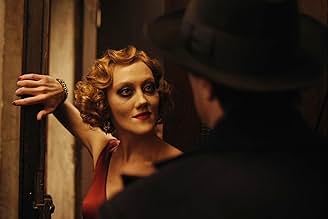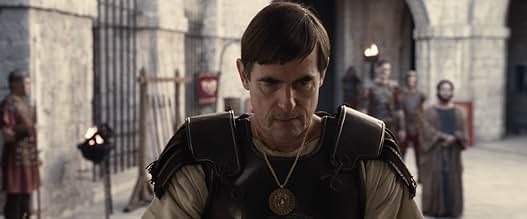These days it's tempting to refuse anything Russian, but in this case one has to note that 1) this is adapted from the most celebrated work of Russian fiction in the 20th century, written by a Kiev-born dramatist shortly before his death and forbidden from publication in the Soviet Union until the 1960s, and 2) this was largely financed by an Odessa-born American billionaire who owns the sports network DAZN. Also, principal photography was finished in late 2021, before the invasion of Ukraine.
The phantasmagorical plot makes for an extraordinary reading experience because one cannot summarize it. Like all truly great literature, this is not really a story about something, it's a series of bizarre anecdotes set in the framework of forsaken romance in the claustrophobic Stalinist Moscow of the 1930s, where the Devil appears on the pages of a writer in crisis, and then seemingly in reality. German actor August Diehl's performance as Woland is the best of his career and he gives the character a perfect ambivalence which is required in portraying the supernatural. It is quite possible to read into his Satan an allegory of Putin himself, and it is also quite possible to deny it. The hysterical satire of the novel requires high production values which previous adaptations never achieved - this film almost overdoes it, as do many Russian actors. But the leading couple is quite convincing, even if they pale within the impressive imagery.
Upon release in Russia, the film was attacked by the Pro-Putin crowd which helped to turn this into the most successful Russian film of the century. It's a miracle it was even released since US-born director Lockshin finished post-production in the States and did not return to Russia after the invasion, which he has frequently condemned. So credit where credit is due, this film is a beacon of creative light in Russia's political darkness.

![Guarda Trailer [OV]](https://m.media-amazon.com/images/M/MV5BZTk1ODEzN2MtYzRiZS00NTBlLWIxYmMtM2E4MzYxYTU4YWU0XkEyXkFqcGdeQXRyYW5zY29kZS13b3JrZmxvdw@@._V1_QL75_UX500_CR0)
































